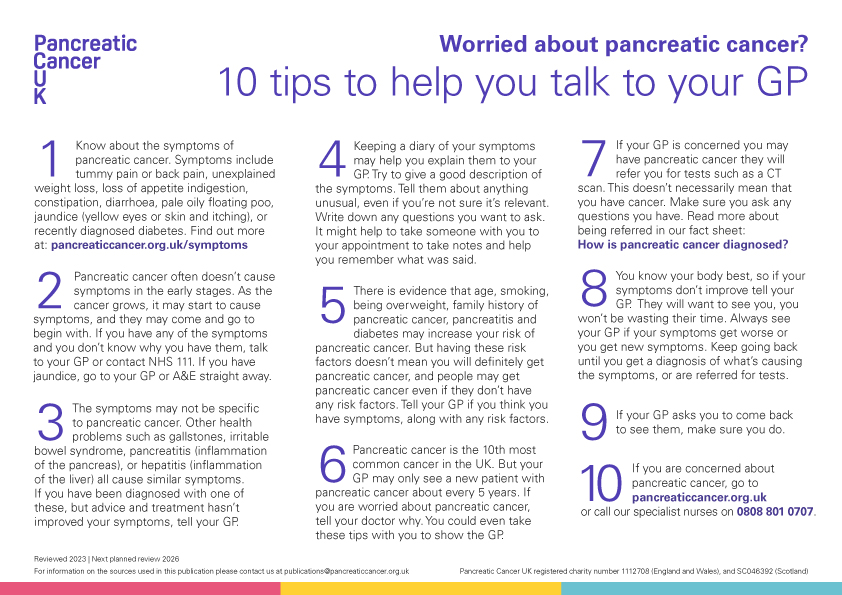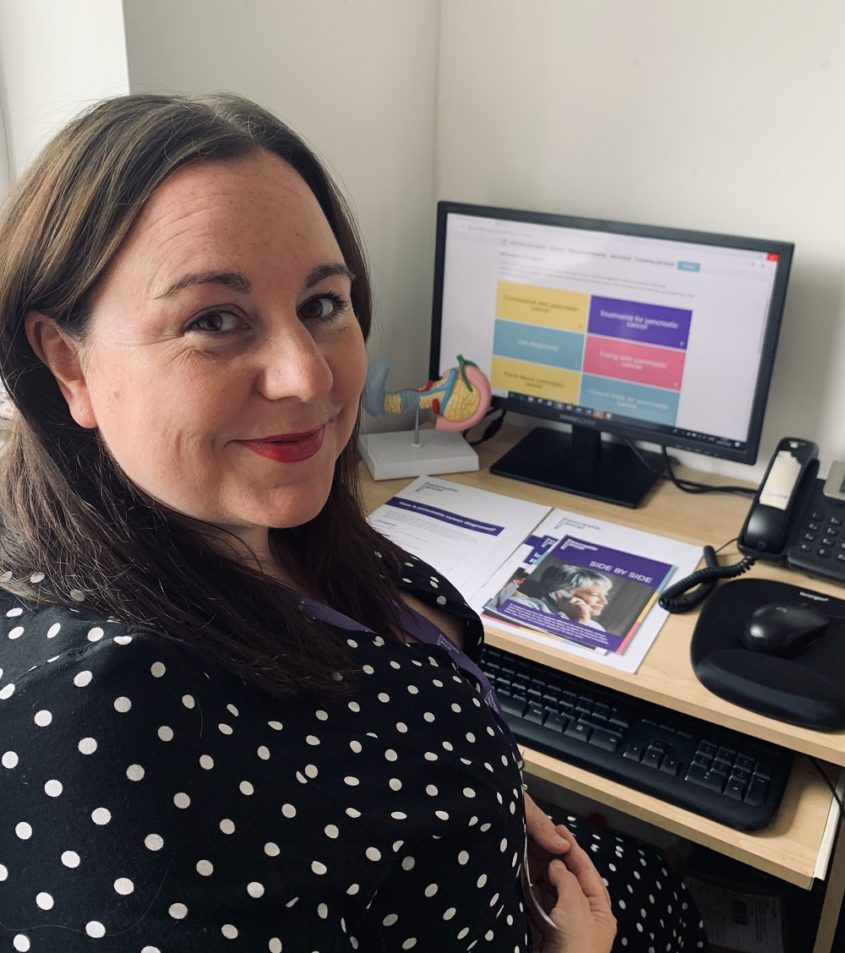Tips to help you talk to your GP
We know some people see their GP several times before they are diagnosed with pancreatic cancer. These tips can help you talk to your GP.
What is in the 'How is pancreatic cancer diagnosed?' section?
- How is pancreatic cancer diagnosed?
- Seeing your GP
- Tips to help you talk to your GP
- Tests for pancreatic cancer
- What do my test results mean?
10 tips for talking to your GP about pancreatic cancer
1. Know about the different symptoms of pancreatic cancer. Symptoms include tummy pain or back pain, unexplained weight loss, loss of appetite indigestion, constipation, diarrhoea, pale oily floating poo, jaundice (yellow eyes or skin and itching), or recently diagnosed diabetes.
2. Pancreatic cancer often doesn’t cause symptoms in the early stages. As the cancer grows, it may start to cause symptoms, and they may come and go to begin with. This can make pancreatic cancer hard to diagnose. If you have any of these symptoms and you don’t know why you have them, talk to your GP or contact NHS 111. If you have jaundice, go to your GP or A&E straight away.
3. The symptoms may not be specific to pancreatic cancer. Other health problems such as gallstones, irritable bowel syndrome, pancreatitis (inflammation of the pancreas), or hepatitis (inflammation of the liver) all cause similar symptoms. If you have been diagnosed with one of these, but advice and treatment hasn’t improved your symptoms, tell your GP.
4. Keeping a diary of your symptoms may help you explain them to your GP. Try to give a good description of the symptoms. Tell them about anything unusual, even if you’re not sure it’s relevant. Write down any questions you want to ask. It might help to take someone with you to your appointment to take notes and help you remember what was said.
5. There is some evidence that age, smoking, being overweight, a family history of pancreatic cancer, pancreatitis and diabetes may increase your risk of pancreatic cancer. But having some of these risk factors doesn’t mean you will definitely get pancreatic cancer, and people may get pancreatic cancer even if they don’t have any of the risk factors. Tell your GP if you think you have symptoms, along with any risk factors.
6. Pancreatic cancer is the 10th most common cancer in the UK. But your GP may only see a new patient with pancreatic cancer about every 5 years. If you are worried about pancreatic cancer, tell your doctor why. You could even take these tips with you to show the GP.
7. If your GP is concerned that you may have pancreatic cancer they will refer you for tests such as a CT scan. Being referred doesn’t necessarily mean that you have cancer. Make sure you ask any questions you have. Read more about how pancreatic cancer is diagnosed.
8. You know your own body best, so if your symptoms don’t improve tell your GP. They will want to see you – you won’t be wasting their time. Always see your GP if your symptoms get worse or you get new symptoms. Keep going back to your GP until you get a diagnosis of what’s causing the symptoms, or are referred for tests.
9. If your GP asks you to come back to see them, make sure you do.
10. If you’re concerned about pancreatic cancer you can speak to our specialist nurses on our free Support Line.

Speak to our specialist nurses
If you have questions about going to the GP or are worried about pancreatic cancer, speak to our specialist nurses on our free Support Line.

References
For information on the sources used in this publication please contact us at publications@pancreaticcancer.org.uk
Reviewed 2023
To be reviewed in 2026